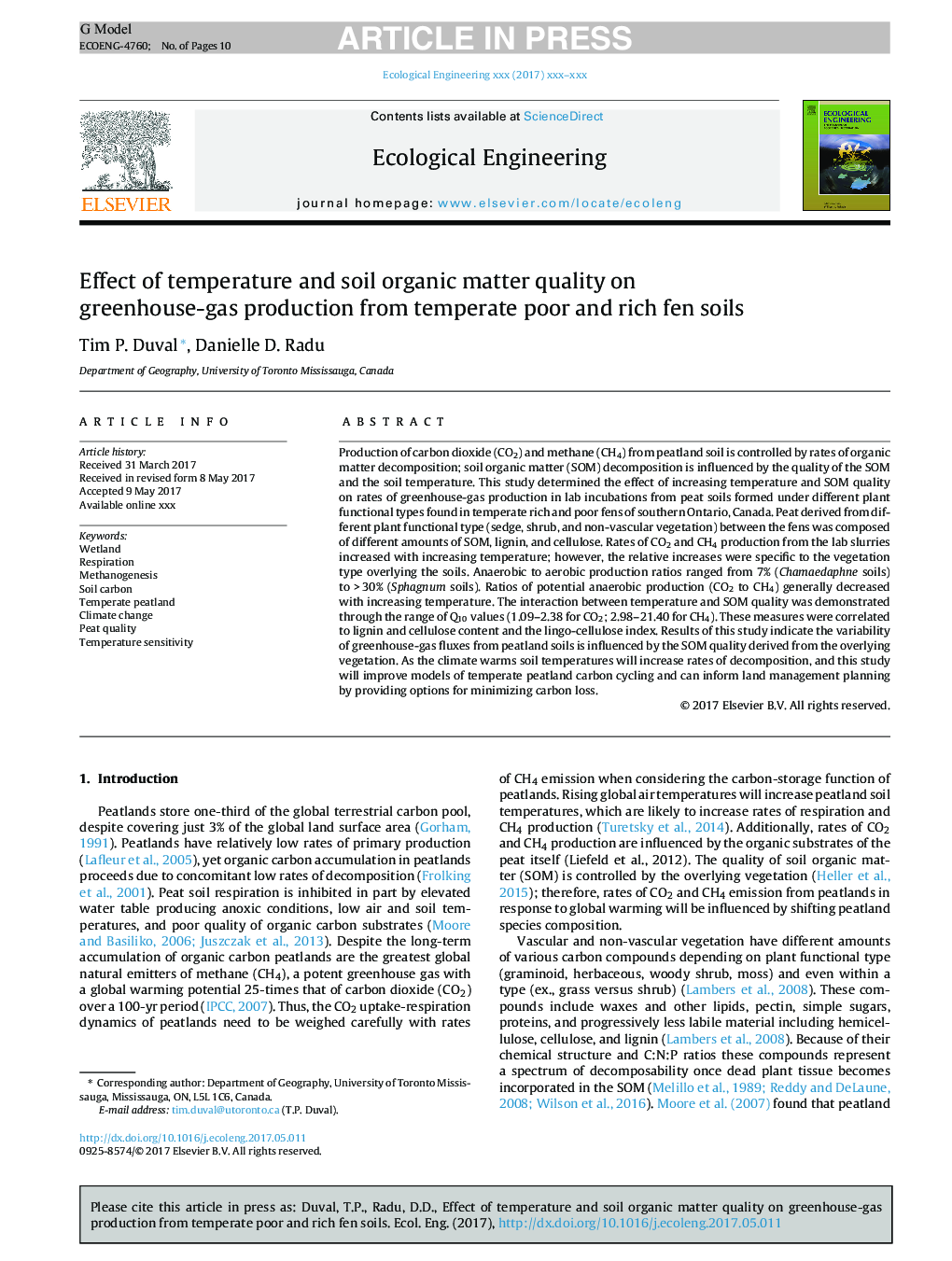| Article ID | Journal | Published Year | Pages | File Type |
|---|---|---|---|---|
| 8847983 | Ecological Engineering | 2018 | 10 Pages |
Abstract
Production of carbon dioxide (CO2) and methane (CH4) from peatland soil is controlled by rates of organic matter decomposition; soil organic matter (SOM) decomposition is influenced by the quality of the SOM and the soil temperature. This study determined the effect of increasing temperature and SOM quality on rates of greenhouse-gas production in lab incubations from peat soils formed under different plant functional types found in temperate rich and poor fens of southern Ontario, Canada. Peat derived from different plant functional type (sedge, shrub, and non-vascular vegetation) between the fens was composed of different amounts of SOM, lignin, and cellulose. Rates of CO2 and CH4 production from the lab slurries increased with increasing temperature; however, the relative increases were specific to the vegetation type overlying the soils. Anaerobic to aerobic production ratios ranged from 7% (Chamaedaphne soils) to >Â 30% (Sphagnum soils). Ratios of potential anaerobic production (CO2 to CH4) generally decreased with increasing temperature. The interaction between temperature and SOM quality was demonstrated through the range of Q10 values (1.09-2.38 for CO2; 2.98-21.40 for CH4). These measures were correlated to lignin and cellulose content and the lingo-cellulose index. Results of this study indicate the variability of greenhouse-gas fluxes from peatland soils is influenced by the SOM quality derived from the overlying vegetation. As the climate warms soil temperatures will increase rates of decomposition, and this study will improve models of temperate peatland carbon cycling and can inform land management planning by providing options for minimizing carbon loss.
Related Topics
Life Sciences
Agricultural and Biological Sciences
Ecology, Evolution, Behavior and Systematics
Authors
Tim P. Duval, Danielle D. Radu,
